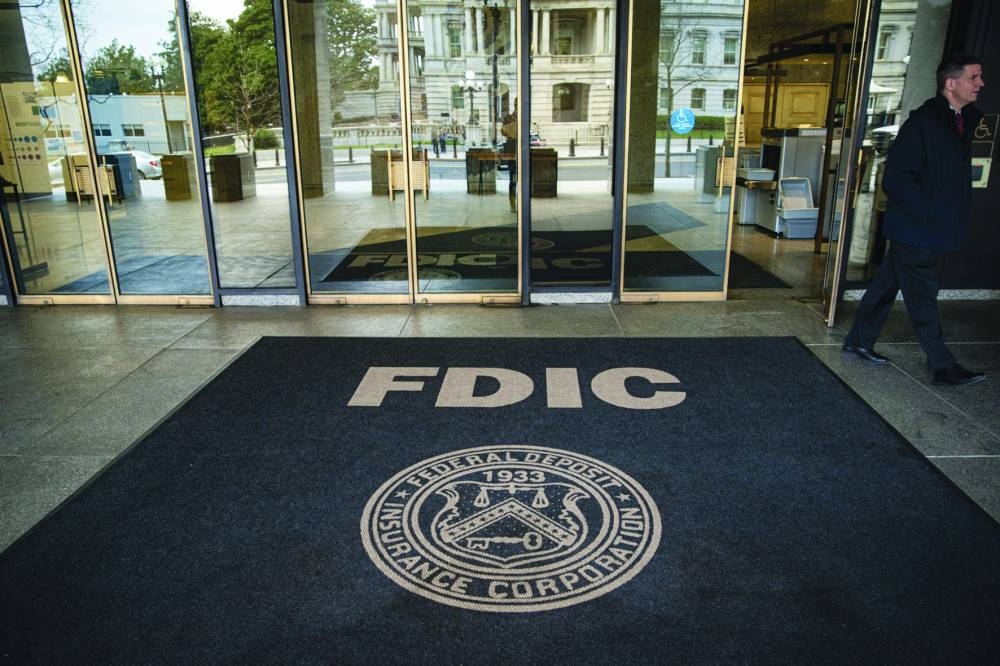
The Federal Deposit Insurance Corp headquarters in Washington, DC. The FDIC is considering whether to offer loss-sharing agreements to private equity firms and other non-banks that acquire parts of failed lenders, after the regulator was left holding a large portfolio of Signature Bank loans following its collapse.
The Federal Deposit Insurance Corp (FDIC) is considering whether to offer loss-sharing agreements to private equity firms and other non-banks that acquire parts of failed lenders, after the regulator was left holding a large portfolio of Signature Bank loans following its collapse.
The move, described by FDIC officials, could entice such firms to buy loans and assets from collapsed institutions if interest-rate hikes topple more regional lenders. Potentially, the FDIC could get higher bids from a wider range of firms by offering to share the risks involved with buying such assets.
Since March, Apollo Global Management Inc, Blackstone Inc and other nonbanks haven’t been able to easily scoop up discounted assets from the regional US lenders that failed.
These firms come to auctions at a disadvantage because they don’t have bank charters and therefore can’t bid for an entire lender.
Meanwhile, the FDIC doesn’t regulate nonbank institutions — potentially complicating any oversight of loss-sharing agreements.
More participation by private equity firms could ease some of the stress on the FDIC’s insurance fund by garnering higher bids on the assets it’s selling, and deflect criticism that the agency isn’t getting fairly compensated.
The agency benefited after two recent failures from equity-sharing arrangements with banks that acquired the defunct lenders, but shares of the new owners soared beyond the point where the FDIC’s stake was capped — raising questions about whether the FDIC could have gotten better terms.
The regulator’s decision to consider loss-sharing with nonbanks was driven by the outcome of the sale of New York’s Signature Bank, according to the FDIC officials, who spoke on the condition they not be identified.
That deal saddled the FDIC with a $60bn loan portfolio, including $11bn in loans in New York City apartments whose values have fallen in recent years.
In the most recent bank turmoil, the FDIC has entered into loss-share agreements only with bank bidders. First Citizens BancShares Inc, which bought Silicon Valley Bank, will only be responsible for half the losses exceeding $5bn on commercial loans for the next five years. The largest bank in the US by assets, JPMorgan Chase & Co, also got a loss-share provision on certain loans when it bought First Republic Bank this week.
While nonbanks haven’t been offered loss-sharing agreements during this recent banking turmoil, private equity firms have scored such deals in the past — particularly during the last financial crisis.
In 2009, the FDIC agreed to share losses with a group of private equity firms that bought BankUnited FSB, agreeing to reimburse 80% of their first $4bn in losses and 95% of any additional losses. The FDIC also paid the firms $2.2bn upfront, marking one of the Great Recession’s major windfalls.
Private equity has benefited the FDIC, too.
The regulator released a paper in 2021 examining the role of private equity in rescuing banks after the financial crisis. The researchers found private equity made “substantial investments in underperforming and riskier failed banks” and calculated that 5.5% more failed banks would have been liquidated if private equity hadn’t stepped in.
